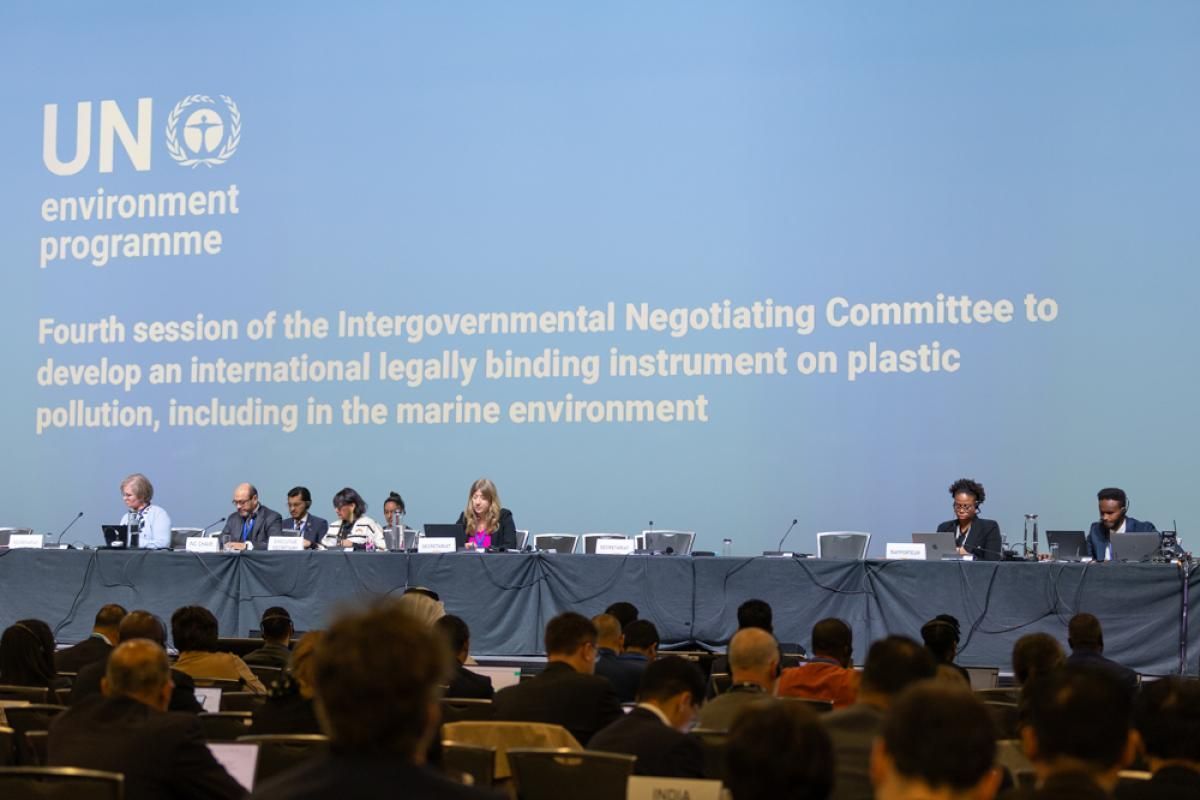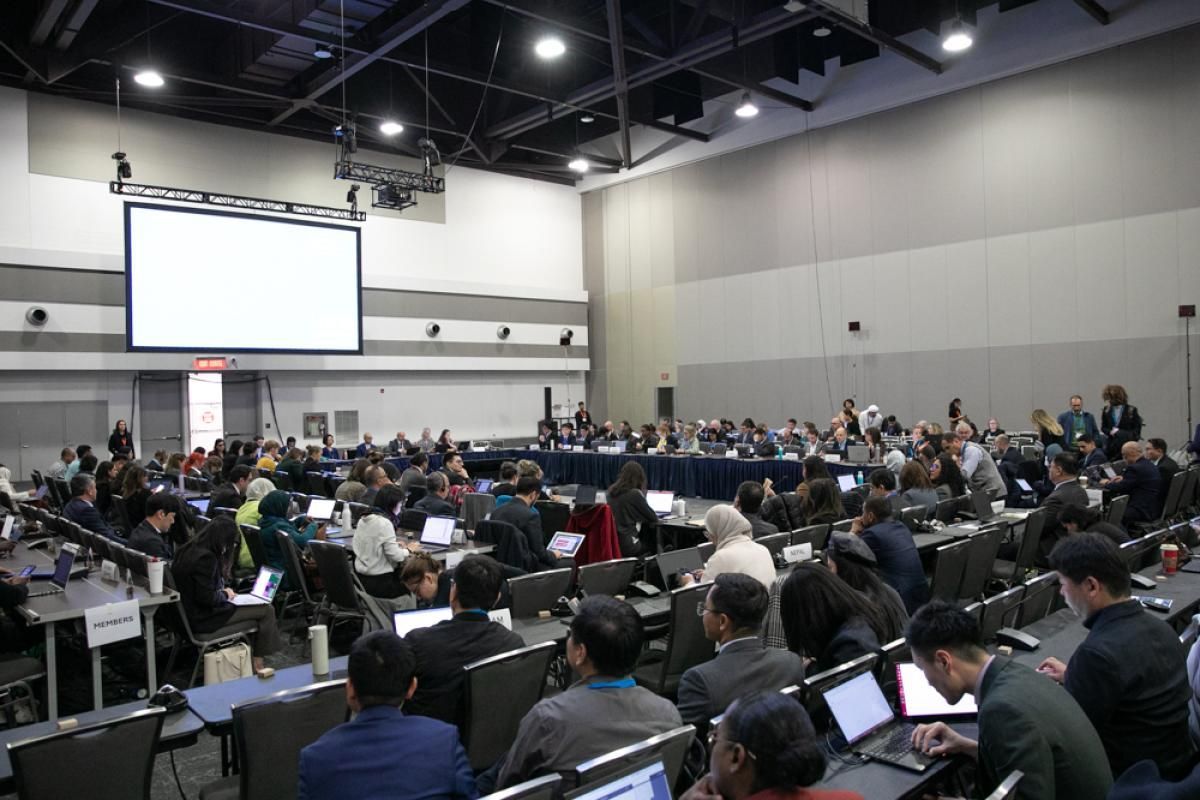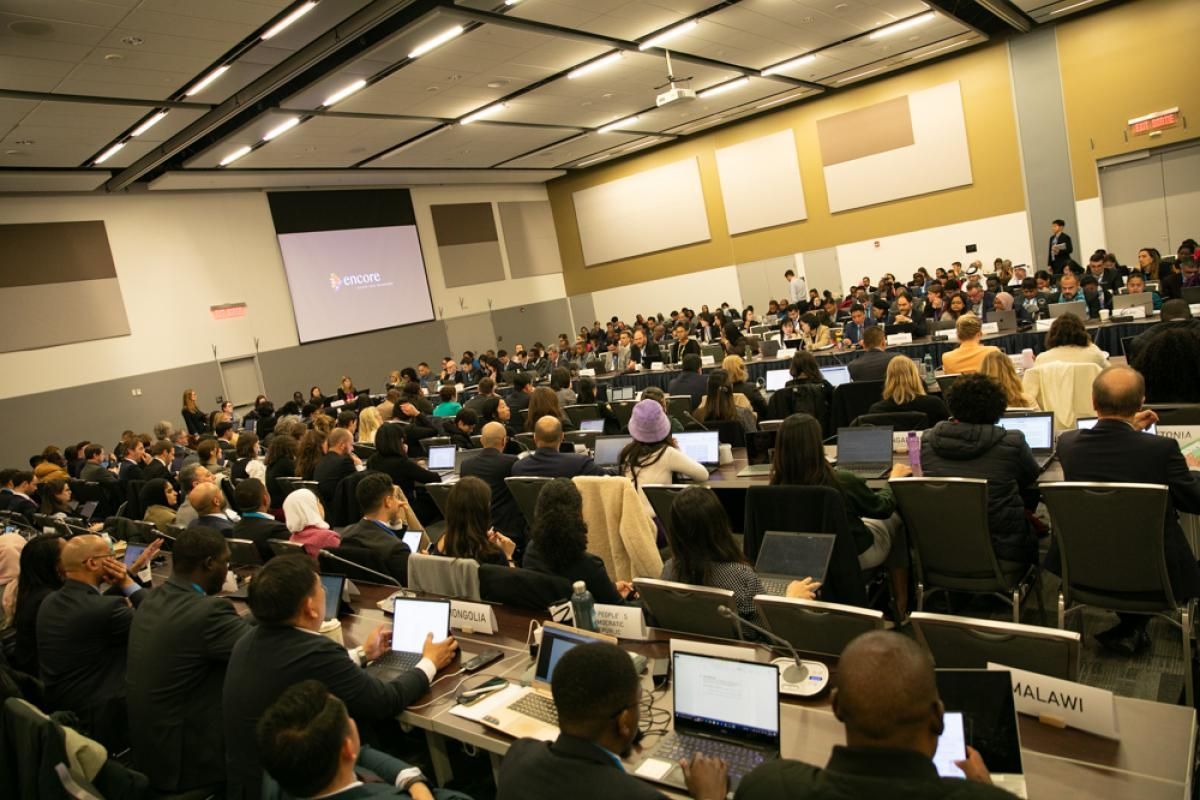Global Plastics Treaty: From Ottawa to Busan

On April 30, 2024, the fourth meeting of the Intergovernmental Negotiating Committee (INC-4) for a global agreement to end plastic pollution concluded in Ottawa, Canada. The event brought together over 2,500 participants from governments, academia, civil society organizations, private sector entities, UN agencies, and international organizations. Coalition Clean Baltic reflects on its participation alongside many other civil society organizations.
Meeting Dynamics
The INC's work was organized into two primary contact groups. The first group addressed introductory elements (Part I: preamble, objectives, principles, scope, and just transition) and substantive provisions (Part II). The second group focused on Part III (Means of Implementation), Part IV (Implementation Measures), Part V (Institutional Arrangements), and Part VI (Final Provisions). These contact groups were further divided into sub-groups to discuss specific elements and provisions.
Countries agreed to advance intersessional work on financial mechanisms, plastic products, chemicals of concern, product design, reusability, and recyclability. However, discussions on primary plastic polymers were excluded from this mandate. Member states decided to include observers in this intersessional work and established a legal drafting group to review the text and provide recommendations to the plenary.
Peru and Rwanda emerged as champions by proposing intersessional work aimed at reducing global use of primary plastic polymers by 40% from 2025 levels by 2040. This proposal received strong support from several countries, including Malawi, the Philippines, and Fiji. In addition, the Bridge to Busan Declaration on Plastic Polymers was launched to garner support for addressing primary plastic polymers in the treaty text, building momentum for the fifth and final round of negotiations in Busan, Republic of Korea, later this year. However, this declaration is non-legally binding and does not address fossil fuel extraction.

Outcomes of INC-4
The main outcomes of INC-4 were:
- Transitioning from a zero draft, which was a collection of inputs from member states, to a first draft "owned" by the INC, allowing for line-by-line negotiations.
- Securing intersessional work on regulating chemicals and products.
- Agreeing to establish a legal group to translate the draft text into appropriate legal language, starting from INC-5.
Reflections
Significant work remains. The transition from a zero draft with 69 pages to a first draft, approximately ten to eleven pages shorter but with over 3,000 brackets of text, marks progress but highlights the extensive negotiations still needed. The first draft, unlike the zero draft, is created and maintained by the INC, enabling more detailed negotiations. However, it still lacks the structure typical of a treaty.
We welcome the decision to conduct intersessional work on chemicals, products, and the financial mechanism. The INC decided to have an open-ended expert meeting between INC-4 and INC-5, but the participation of observers will be limited. It is disappointing that intersessional work will not address the overproduction of plastic, and there is concern about the ongoing focus on plastic recycling, given the increasing evidence that recycling plastic spreads toxic chemicals.
Despite not securing intersessional work on primary plastic polymers, provisions related to polymer production remain in the draft treaty. This is despite efforts by several countries to exclude these provisions from the future agreement's scope.
What Next
With high-ambition issues seemingly off the table, it remains to be seen whether delegates can agree on common ambition levels for other elements or if this will become a "plastics pollution treaty à la carte." Even if a global mandate on key provisions is still possible, some crucial elements may only be included as voluntary options, if at all.
Nonetheless, the treaty could lay the foundations for strengthening ambition levels in the future, especially through the governing body's work to implement and further international collaboration on plastic pollution. The treaty's eventual ambition level does not prevent countries from adopting stronger measures in their national action plans. With more clarity on the treaty's potential post-INC-5, participants and observers can remain hopeful about the power of multilateralism to end plastic pollution.

CCB Recommendations
We urge countries to:
- Recognize that more plastic production leads to more plastic pollution. Ending plastic pollution is impossible without curbing plastic production.
- Implement the treaty's health objectives by eliminating hazardous chemicals used in plastic production.
- Ensure a toxics-free circularity by preventing hazardous chemicals in recycled plastics. Promoting the recycling of plastics with hazardous chemicals will increase exposures and undermine the treaty's health objectives.
Background
As plastic pollution becomes increasingly visible on land and in waterways, calls to address the mounting plastic waste crisis have grown worldwide. Of the approximately 10 billion tonnes of plastic produced since the 1950s, over 8 billion tonnes are now waste, with 10-15 million tonnes leaking into the marine environment each year. This figure is expected to more than triple by 2050.
Studies link unsustainable production and consumption patterns to the exponential growth of plastic pollution, impacting human health and terrestrial and marine ecosystems. Reports in 2022 found plastic particles in human lungs and blood, and a 2021 report found microplastics in human placentas.
***
Article written by Eugeniy Lobanov, CCB Hazardous Substances Working Area Leader
Useful resources:


